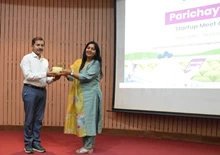
Amid several debates going on around the profitability and validity of Zero Budget Natural Farming in India, a Research Report claims that Andhra Pradesh could save a huge amount in fertilizer subsidies which could be nearly Rs 2,100 Cr. annually after the implementation of ZBNF in the state. As per reports, the savings could be to the tune of nearly Rs 2,100 Cr in fertilizer subsidies annually if it scaled up ZBNF to all six million farm families in the state by 2024, according to an independent study released by the Council on Energy, Environment and Water (CEEW).

Moreover, the study found that 77 percent of the farmers adopting ZBNF (Zero Budget Natural Farming) did not use any fertilizers, while the rest continued to use chemical inputs in smaller quantities, along with the adoption of a few critical natural farming practices.
As per reports, the average 'Zero Budget Natural Farming' farmer in AP grew rice and maize using 99 percent and 85 percent less urea per acre respectively, than a conventional farmer.
What was Found in the Study?
The CEEW study, in association with the Sustainable India Finance Facility (SIFF) and supported by Vijayavahini Charitable Foundation, based on a May 2019 survey is covering more than 600 farmers in 60 villages across six districts in Andhra Pradesh. The surveyed districts include Anantapuram, Kadapa, Krishna, Srikakulam, Vizianagaram, and West Godavari. In Andhra Pradesh, more than 500,000 farmers currently practice ZBNF as part of a state government-led initiative.
The research found that ZBNF had been adopted by a large number of marginal farmers in AP. Instead of chemical fertilizers and pesticides, ZBNF farmers used low-cost locally-sourced natural concoctions, inoculums and decoctions based on cow dung, cow urine, jaggery, lilac, green chilies, and many other such natural ingredients.

Rajiv Kumar, Vice-Chairman, NITI Aayog, said, “To take the current research on Bhartiya Prakrutik Krishi Paddhiti (Indian natural farming practices) further, we need more organizations and partners to conduct comprehensive and multi-faceted studies. Research across different agro-climatic zones in the country to look at overall cost reduction, yields, climate change, water-use, price realization, will further help understand the prospects better.”










